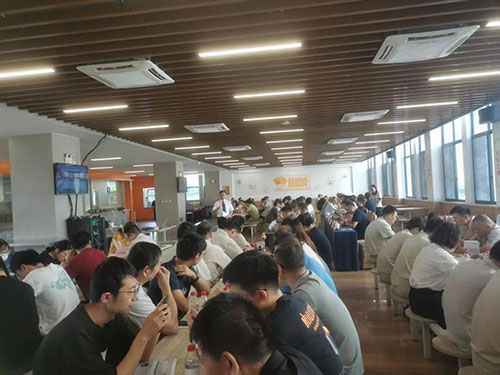On August 16, 2025, Shanghai Chuangli Group held a company-wide training session on laws and regulations at its headquarters. The event focused on corporate compliance operations and the prevention of job-related crimes, aiming to enhance employees' legal awareness, clarify legal boundaries in their work, and strengthen the legal foundation for the company's high-quality development.

I. Targeting the Root of Risks: Analyzing Three Major Causes of Job-Related Crimes
The trainer provided a systematic analysis of the core causes of job-related crimes based on the current legal environment and corporate practices:
1. Unintentional Non-Compliance Due to Ignorance: Some employees inadvertently cross legal boundaries in their daily work due to a lack of legal knowledge, highlighting the urgency of foundational legal education.
2. Risk-Taking Driven by Overconfidence: Despite being aware of legal provisions, some employees take risks under the temptation of benefits, misjudging the concealment of illegal activities. This reflects weaknesses in the company’s supervision mechanisms.
3. Passive Involvement Risks: Participation in illegal activities under social or group pressure exposes deficiencies in the construction of an internal compliance culture.
II. Case-Based Teaching to Deepen Understanding: Using Real Cases to Sound the Alarm
The training enhanced its cautionary impact through scenario-based case studies, where real-life examples transformed abstract legal provisions into concrete risk maps. Through discussions, employees progressively built a three-dimensional cognitive framework of "legal risks - business scenarios - prevention strategies."
This training is one of Chuangli Group’s key initiatives to strengthen compliance management. By systematically conveying knowledge and providing case-based warnings, it encourages employees to move from "knowing" to "doing," transforming passive compliance into active defense. This helps foster a sound legal environment within the enterprise and establishes a long-term safeguarding mechanism that embodies resilience, efficiency, and bottom-line principles for the group’s high-quality development.